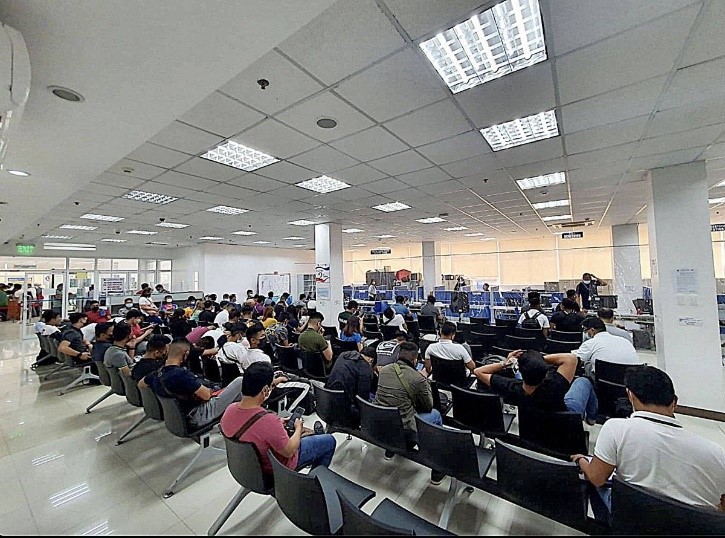Ambulance-chasing big threat to seafarers

As published by The Manila Times on January 18, 2023
Global leaders from organizations representing shipowners and unions raised grave concerns about ambulance chasing and the abuse of the seafarer compensation system in the Philippines during the foreign policy tour of President Ferdinand Marcos Jr. in Brussels on Dec. 13, 2022.
The top agenda of the meeting was to address the impending barring of as many as 50,000 Filipino licensed maritime officers and engineers onboard European Union-flagged vessels over qualification issues found in the European Maritime Safety Agency (EMSA) audit.
Per the 2020 audit, the Philippines needed to address unacceptable deficiencies in seafarers’ education, training and certification.
In response, the President assured the stakeholders that the government is addressing these concerns.
Aside from this big threat in the EU, the maritime stakeholders raised the problem of a “predatory claims industry” and ambulance chasing to the Philippine President.
They said this could potentially pose a bigger challenge to the continued employment of more than 400,00 Filipino seafarers.
In a joint statement, the group of the International Maritime Employers Council (IMEC), the International Chamber of Shipping (ICS), and the International Transport Workers Federation (ITF) stated, “While intended to secure speedy resolution and compensation for injured and aggrieved seafarers, the injury claims industry system today sees seafarers’ hardship and goodwill exploited by ambulance-chasing lawyers.”
The victimization of Filipino seafarers by people or groups to make fraudulent and costly injury claims against their employers has resulted in shipowners exploring and tapping potential alternative sources of seafaring manpower such as in South Africa.
In 2000, Filipino crew made up 28.5 percent of the global seafarer population, however by 2020, that figure had dropped to just 14 percent. Any further decline would jeopardize the $6.54 billion in wages Filipino seafarers send home each year to their families — money critical to the Philippine economy.
In a previous meeting with the Department of Migrant Workers, IMEC Chairman Francesco Gargiulo said that the EMSA audit finding is nothing close to how the shipowners are alarmed by ambulance chasing.
Before this, IMEC, an organization of 250 global shipping companies, had already shown in its 2021 report a decline in the share of global supply for Filipino ratings in favor of Indian ratings since 2015. India has overtaken the Philippines as the number one supplier of officers in 2017.
In a presentation before shipowners in November 2022, the DMW declared ambulance chasing as a real and urgent concern. It recognized that 23 percent of all NCMB total monetary awards, or an estimated total of P2.57 billion (from 2013-2022), make up the computed judgment reversed by the appellate courts and subject to restitution. Very little of the amount wrongfully awarded to seafarers has been returned to the shipowners.
This unreturned amount is based only on cases fought off by shipowners and does not include a greater amount that was “settled under duress.”
In response, President Marcos ordered the Department of Migrant Workers to establish the International Advisory Committee on Global Maritime Affairs (IACGMA) – a maritime advisory committee to address the training issue and consider reforms to the broken seafarers’ claims system.
The committee will draw on experts from both industry and the workforce to support the Philippines’ government.
ICS, which represents around 80 percent of the world’s merchant tonnage through membership by national shipowners’ associations, and the ITF, IMEC and International Labor Organization (ILO) will all be invited to share their expertise.
The committee’s advice could be key as the Philippines, like other global maritime leaders, looked to navigate its way through the challenges of the future, such as climate change.
In a statement, ALMA Maritime Group Chairman lawyer Iris Baguilat expressed the support of its members and participants of the group as needed for the forthcoming creation of the committee.
“2022 was a big year for our industry’s decades-long fight with ambulance chasing. We are elated with the developments before the year closes. From closed-door meetings and industry conferences, our awareness efforts at long last paid off and reached our president and legislators who are now taking action for maritime affairs. We are looking forward to working with the committee,” Baguilat said.
The meeting with the President in Belgium represents the first official engagement of the IMEC, ICS and ITF with a national leader since the bodies recently signed an MoU to maximize the impact of their advocacy efforts on behalf of crew and industry.
